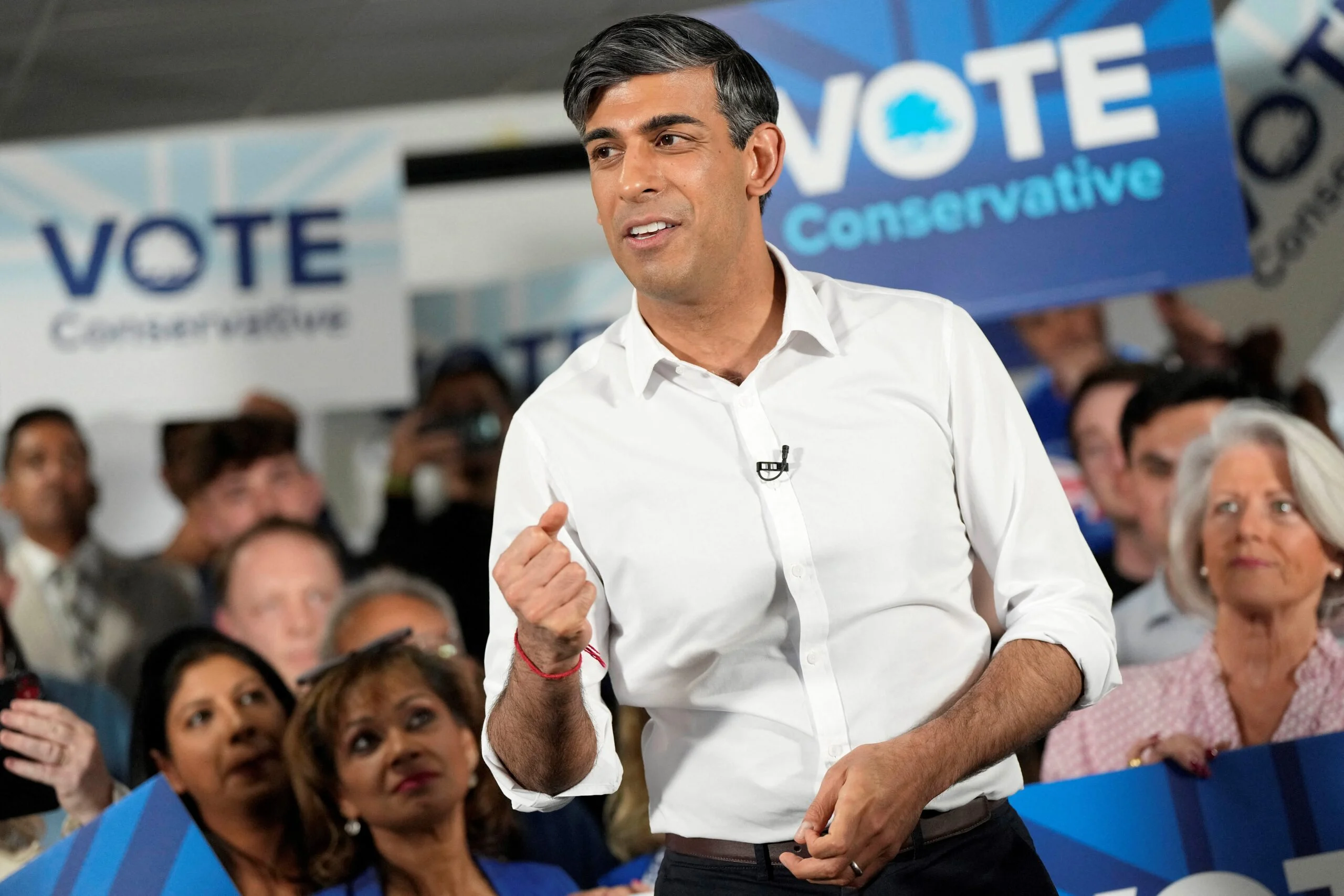- Saturday, July 27, 2024
The July election timing shows that Sunak lacks confidence that his Rwanda plan would actually stop the boats if put to the test this summer, writes Sunder Katwala

By: Sunder Katwala
THE element of surprise was the one thing that Rishi Sunak had left. So Britain will go to the polls on July 4th. It was a very personal decision: the Cabinet was informed after the prime minister returned from the Palace having asked the King. If the campaign ends in defeat, the responsibility will be his.
Sunak’s surprise decision seemed to catch his own party unprepared. Calling the election triggered a significant exodus of MPs including Michael Gove and Andrea Leadsom, with the Conservatives behind on candidate selection. The dissolution sacrificed several pieces of legislation, which may have given Sunak’s premiership more of a legacy if it does end after 20 months. These include his proposed ban on young people ever being able to smoke; renters’ rights; and establishing the football regulator.
Why now? Sunak has made progress on bringing inflation back to normal levels. That statistical fact, with prices rising more slowly once again, struggles to compete with the experience of static or falling living standards.
This July election timing also shows that Sunak lacks confidence that his Rwanda plan would actually stop the boats if put to the test this summer. The idea of Rwanda as a deterrent will be deployed as a key ‘dividing line’ in the campaign, since Labour plans to scrap it. An Autumn election, if flights had begun, would have undermined the argument. Arrivals across the Channel throughout August would almost certainly have outstripped any removals ten-fold.
Yet the election timing is good for the country. Normal government had largely come to a halt. Sunak has in effect chosen a six-week election campaign over a six-month one. That seems counterintuitive for a party way behind in the polls – but the hope that something might turn up was undermined by factional infighting. Most voters had long preferred a Spring or Summer election to one in the Autumn or Winter, though mainly because most wanted the chance to change the government sooner rather than later.
The opening skirmishes of the campaign have often been dominated by debates about image and communication, such as Sunak getting soaked in the rain while making his election announcement. But the Conservatives are not in trouble in this election because Rishi Sunak lacked an umbrella. It is the political and economic fundamentals – and the dominance of the mood for change – which make it so difficult for the Conservatives to ask for a fifth term after 14 years in office.
The broadcasters have a democratic duty to the voters – and to due impartiality – to cover the manifesto launches, the debates and the campaign arguments as a test of the rival contenders for power. So the 2024 General Election is a rather asymmetric contest. It is hard to find anyone in the Conservative Party who believes that Rishi Sunak could return to Downing Street.
Denying Labour a majority would require a remarkable political comeback. This Conservative campaign is in reality a salvage operation: rescuing half of the party’s seats would see the party survive to rebuild in opposition. Getting the Conservative vote share back up to a level that at least matches its worst ever General Election score – 31% in 1997 – means pitching mainly to a sceptical lost “core vote” which is undecided or considering Reform.
Paying less attention to Conservative voters who have switched to Labour makes Keir Starmer’s challenge more straightforward. Labour’s advantage is that its one-word message, “Change”, can resonate across voters with different ideas of what that change should mean.
There are two different kinds of election campaign. In “choice” elections, the question of who will govern feels wide open – as it does in the neck-and-neck contest between Joe Biden and Donald Trump in America, or in the British elections of 1992 or 2015. There is another type of election where everybody assumes the most likely winner is obvious. These could be called “ratification” elections – when the function of the campaign is mainly to scrutinise the likely government.
The uncertainties of democracy can make such one-sided contests treacherous too. David Cameron was expected to win in 2010 – but could not secure a majority. Theresa May almost blew her election entirely, returning to office but with no majority or mandate to deliver Brexit. Keir Starmer must seek to emulate Tony Blair, the last leader successfully to triumph after navigating the expectation of victory from opposition.
Democracy gives fifty million of us the chance to help choose our government. Around six out of ten of us will think it is worth taking part. British Asians will account for almost a tenth of the votes cast. Every voter will need to weigh up how much the choice of leaders, party allegiances or the key issues at home and abroad will influence how they vote. Rishi Sunak could surprise Westminster with the election timing – but delivering a campaign miracle is likely to prove beyond his powers.
(The author is the director of British Future)